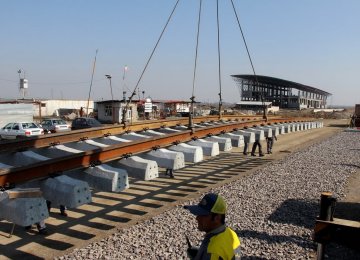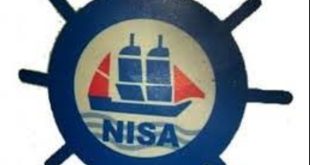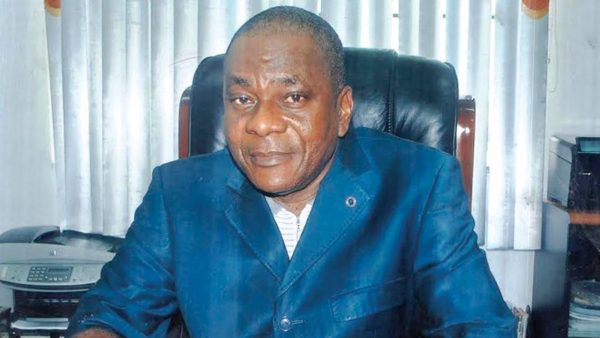 · Nigeria’s budget not an actionable document, it’s PR — Prof. Utomi
· Nigeria’s budget not an actionable document, it’s PR — Prof. Utomi
· Railway deserves priority to boost Nigeria’s economy — Bello, Udoma
By Kenneth Jukpor
Despite the federal government’s commitment to developing Nigeria’s transport infrastructure, economic experts assert that the N123 billion apportioned to the Ministry of Transport for capital projects wouldn’t deliver the government’s projected infrastructure growth for 2020.
The nation’s 2020 budget of N10,594,362,364,830 tagged “Budget of Sustaining Growth and Job Creation” has been signed into law, however, economic experts and transport veterans express worry that the budgetary provision for the transport sector isn’t sufficient.

The narrative surrounding Nigeria’s primary fiscal tool ‘the budget’ changed as the Senate and President Mohammadu Buhari approved and signed the 2020 budget respectively, before the end of 2019. However, the budgetary implementation, rising debt service and low allocation to critical sector like transportation has raised serious concerns.
Some leading economic experts also posit that the nation’s budget doesn’t reflect the country’s fiscal objectives or guide the economic actions of the nation.
A veteran economist and Founder of Centre for Values in Leadership (CVL), Prof. Pat Utomi shared this perspective during an exclusive chat with MMS Plus newspaper last week.
Utomi said; “I came to conclusion years ago that the Nigerian budget isn’t set out objectively to manage the economy. The budget is designed as a Public Relations (PR) document because what is done in the nation doesn’t reflect the budgetary provisions. This 2020 budget isn’t any different”
Noting that he had become notorious for saying that he doesn’t discuss the nation’s budget, Utomi explained, “I used to discuss it a lot in the past but I realized it wasn’t an actionable document to guide the government and things haven’t changed”
Speaking with our correspondent on the N123 billion for capital projects under the Ministry of Transportation, the Chairman, Nigerian Ports Consultative Council, Otunba Kunle Folarin stated that the provision was insufficient for the transport infrastructure development outlined for 2020.
“The 2020 budget sees capital expenditure account for the N2.4 trillion while recurrent expenditure is at N4.8 trillion. You find that the recurrent expenditure outweighs the capital expenditure while the debt servicing figures also outweighs the social welfare. This means that the implementation of the 2020 budget will not reflect the projected growth in infrastructure such as railway, power, roads, etc.”
“For the transport sector, the N123 billion allocated is insufficient when considering the massive rail projects and others sub-sectors of transportation in dire need of finance”, he said.
Otunba also warned that Foreign Direct Investments (FDIs) would be more difficult to attract as the concept of globalization had changed around the world.
“Globalization used to be the driving philosophy for intentional trade, but it seems to be taking a nap as several countries have begun to look inwards, being nationalistic and prioritizing protectionist tendencies. A case in point is the United States of America (USA) conflict with China and the United Kingdom and the European Union over Brexit.”
According to him, since most nations were looking inwards to build indigenous capacity, Nigeria should model its economy to do same.
“We can start looking inwards and prioritizing national interest by reserving the available project cargoes and export cargoes for Nigerians while other cargoes can be determined freely” he said.
Meanwhile, the Chief Executive Officer (CEO), Quiet Dimensions Limited, Mr. Ime Udoma lamented that budgeting in Nigeria was always distinct from the implementation.
His words; “We know that budgetary provision is one thing in the country while the implementation is a different ball game altogether. The budget is hardly in sync with the actualization. The N123 billion may not be sufficient given the numerous transport infrastructural needs, but it would be sufficient if invested sincerely and precisely in a sub-sector like the rail.”
According to him, a significant development of the nation’s rail system with the available budget would take a chunk of the cars and trucks off the roads, thereby making the roads more durable.
“Look at the light rail from Ibadan to Lagos that other countries would have taken less than three months to do. It has taken almost two years in Nigeria and it’s still not completed. I would suggest that the Transport Ministry focuses on the rail development this year. The chunk of the money should go to the rail”
“From Lagos to Calabar can be done in three hours with light rail. The distance is similar to Manchester to London in the United Kingdom. The rail transport is cheap and it could mean people can live in Calabar and work in Lagos. Efficient transportation system will make lives meaningful and convenient for the citizens. The livestock and other farm products could get to the cities swiftly with the use of trains. The gross waste observed as a result of slow transport systems for perishable items like oranges would be eliminated if the rail system was functional” he opined.
Meanwhile, the Executive Secretary of Nigerian Shippers’ Council (NSC) Mr. Hassan Bello told MMS Plus that the 2020 budgetary provision was an affirmation that the government had realized the crucial role of transportation in economic development.
“In the last three years, transportation has been given a chunk of the nation’s budget. It shows that the government has realized the role of transport infrastructure in the nation’s development. If you have outdated infrastructure, your economy would be sluggish and suffer grossly. On the other hand, modern infrastructure leads to growth of a nation’s economy. Transport is a derived demand, so the more modern your transport infrastructure, the better”, Bello said.
He also commended the federal government’s effort on the rail infrastructure development, noting that the rail transport would change the structure of the nation’s economy.
“The moment we have 30 million MT of cargoes taken from Lagos to Kano via rail, you can imagine the relief that would afford the roads. The train stations would also become major economic hubs, creating enormous job opportunities as there would be hotels, restaurants and other facilities that constitute modern train stations” Bello added.
 MMS PLUS NG – Maritime, Aviation, Business, Oil and Gas News Online Newspaper with coverage in Maritime, Oil and Gas, Aviation, Power and Energy as well as Financial News
MMS PLUS NG – Maritime, Aviation, Business, Oil and Gas News Online Newspaper with coverage in Maritime, Oil and Gas, Aviation, Power and Energy as well as Financial News









